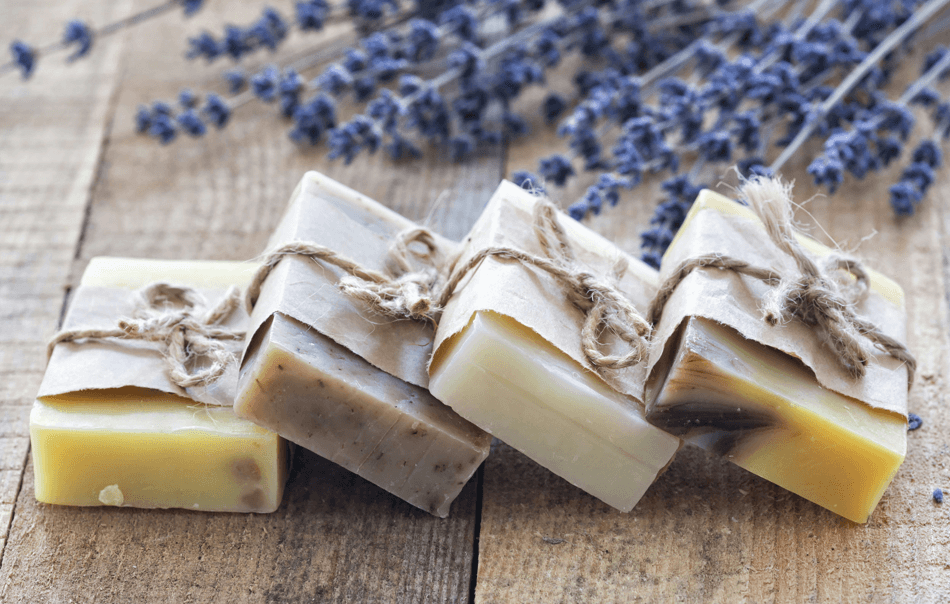Hyaluronic Acid Serum: The Secret To Youthful Skin

Key Takeaways:
- Hyaluronic acid serums provide deep hydration for all skin types, promoting a plump, youthful appearance.
- Applying hyaluronic acid to damp skin can enhance absorption and effectiveness, leading to long-lasting hydration.
- Choosing a serum with the right molecular weight of hyaluronic acid is crucial for targeting specific skin concerns.
Hyaluronic acid serums have become a cornerstone in the world of skincare, revered for their ability to deliver intense hydration and a plumping effect to the skin. This article will delve into the science behind hyaluronic acid, its benefits for various skin types, and how to incorporate it into your skincare routine for maximum efficacy.
What is Hyaluronic Acid?
Hyaluronic acid is a naturally occurring substance in our bodies, known for its capacity to hold up to 1000 times its weight in water. This remarkable feature makes it a key player in maintaining skin hydration and elasticity. However, as we age, the natural hyaluronic acid decreases in our skin, leading to dryness and the formation of fine lines and wrinkles.
The Science of Hyaluronic Acid Serums
Hyaluronic acid serums are specially formulated skincare products that contain high concentrations of this hydrating compound. They are designed to penetrate the skin's surface and provide moisture to the deeper layers, ensuring that the skin feels soft, supple, and rejuvenated.
Benefits for All Skin Types
Whether you have dry skin, oily skin, or sensitive skin, hyaluronic acid serums can be beneficial. For those with dry or dehydrated skin, the serum delivers the much-needed moisture to alleviate tightness and flakiness.
Oily and acne-prone skin types also benefit from hyaluronic acid's lightweight, gel-like texture that hydrates without feeling sticky or causing additional oiliness.
The Importance of Molecular Weights
Hyaluronic acid serums come in different molecular weights, which determine how deeply they can penetrate the skin. Low molecular weight hyaluronic acid reaches deeper skin layers, providing hydration from within, while high molecular weight hyaluronic acid forms a hydrating layer on the skin's surface.
The Impact of Hyaluronic Acid on Skin Elasticity
Regular use of hyaluronic acid serums can improve skin elasticity, giving it a firmer, more youthful look. This is due to the serum's ability to replenish the moisture that is lost as we age, which is essential for maintaining the skin's natural bounce and resilience.
How to Use Hyaluronic Acid Serums
For optimal results, apply hyaluronic acid serum to damp skin after cleansing. This allows the serum to lock in the moisture and enhances its absorption. Finish with your favorite moisturizer to seal in the hydration and protect the skin barrier.

Combining with Other Ingredients
Hyaluronic acid pairs well with other active ingredients like vitamin C, which can help with dark spots and uneven skin tone, and with glycerin, another humectant that draws moisture into the skin. When combined, these ingredients work synergistically to improve the skin's overall appearance and health.
Addressing Specific Skin Concerns
If you're looking to target specific issues such as fine lines, wrinkles, or age spots, look for hyaluronic acid serums that are formulated with additional ingredients like aloe vera or antioxidants to provide extra benefits and address these concerns more effectively.
The Role of Hyaluronic Acid in Skincare Routines
Incorporating a hyaluronic acid serum into your daily skincare routine can make a noticeable difference in your skin's hydration levels and overall appearance. It's a versatile product that can be used both morning and night, and it's gentle enough for daily use.
Choosing the Right Serum
With a plethora of hyaluronic acid serums on the market, it's important to choose one that suits your skin type and concerns. Look for serums with pure hyaluronic acid or sodium hyaluronate, a salt form that is more stable and equally effective, and check for verified buyer reviews to gauge the product's performance.
Expert Opinions
Board-certified dermatologists often recommend hyaluronic acid serums as a non-irritating option for maintaining skin hydration. They can provide guidance on the best products and how to layer them with other skincare items for maximum benefit.
Avoiding Common Mistakes
When using hyaluronic acid serums, it's important to avoid common mistakes such as applying it to dry skin, which can actually draw moisture out of the skin, or using too much product, which can leave the skin feeling sticky. A pea-sized amount is usually sufficient for the entire face.
Layering with Other Products
For those who use multiple skincare products, it's important to layer them correctly. Apply hyaluronic acid serum after toner and before heavier creams or oils. This ensures that the serum's hydrating properties are fully absorbed by the skin.

The Role of Cleansing
Before applying hyaluronic acid serum, it's crucial to start with a clean canvas. Use a gentle cleanser to remove impurities and excess oils, which can hinder the absorption of the serum and reduce its effectiveness.
The Texture Transformation with Pure Hyaluronic Acid Serum
When it comes to achieving a dewy, plump skin finish that seems to defy the laws of physics, pure hyaluronic acid serum is your go-to elixir. The serum's gel-like texture is a sensory delight, gliding over the skin with ease and absorbing quickly without leaving any sticky residue.
This can come as a revelation for those who have struggled with thirsty skin that seems to drink up moisturizers without apparent effect. The unique consistency of hyaluronic acid serum allows for layering under makeup or other skincare products seamlessly, making it a versatile addition to any beauty regimen.
When applied topically, the serum acts like a sponge, drawing moisture into the skin and locking it in for an effect that not only feels luxurious but also visibly plumps and smooths the skin's surface. The result is a complexion that looks as quenched as it feels, radiating a healthy, youthful glow.
The Synergy of Hyaluronic Acid and Daily Moisturizers
When it comes to maintaining a supple skin texture, the combination of hyaluronic acid serum and a quality moisturizer can be a game-changer. By applying hyaluronic acid serum before your regular moisturizer, you're effectively sealing in that long-lasting hydration, ensuring your skin remains plump and dewy throughout the day.
This dynamic duo works in tandem to fortify your skin's natural barrier, protecting against environmental stressors that can lead to dryness and irritation.
I recommend this layering technique as a cornerstone of any skincare regimen aimed at achieving optimal moisture levels. Remember, while hyaluronic acid draws in moisture, it's the role of your moisturizer to lock it in, creating a hydration powerhouse that keeps your skin resilient and radiant.

Expert Advice on Hyaluronic Acid Application
To maximize the benefits of hyaluronic acid serums, it's crucial to follow the advice of skincare experts. A board-certified dermatologist can provide personalized recommendations on how to integrate these serums into your routine for the best results.
For instance, applying the serum to damp skin can enhance its absorption and effectiveness, leading to that coveted gel-like texture and long-lasting hydration. This technique allows the hyaluronic acid to capture the moisture on the skin's surface and draw it deeper into the layers of the epidermis.
Additionally, experts suggest being mindful of the amount of serum you use. A little goes a long way, and over-application won't necessarily increase the benefits; it may just leave your skin feeling sticky.
Use a pea-sized amount, gently patting it onto the skin until fully absorbed. Follow up with your favorite moisturizer to seal in the hydration, and you're well on your way to achieving a complexion that's both moisturized and glowing with health.
Expert Insights on Hyaluronic Acid Serums
Board-certified dermatologists often recommend hyaluronic acid serums as a key ingredient in a comprehensive skin care routine. They appreciate the serum's ability to hydrate the skin effectively without causing irritation, making it suitable for even the most sensitive skin types.
Experts point out that while the body naturally produces hyaluronic acid, its levels can decline with age, leading to drier, less supple skin. By incorporating a high-quality hyaluronic acid serum into your skincare routine, you can help replenish this vital molecule, ensuring your skin remains hydrated and resilient.
The formula of a hyaluronic acid serum is crucial, as it needs to be well-balanced to penetrate the skin's surface and deliver hydration where it's most needed.
A well-formulated serum will combine different molecular weights of hyaluronic acid to target multiple layers of the skin, providing both immediate and long-lasting hydration.
Additionally, when paired with other key ingredients such as vitamin C or retinol, hyaluronic acid can help to enhance their benefits, leading to even more impressive skincare results.
Addressing Acne and Pores
Hyaluronic acid serums can also be beneficial for those with acne-prone skin. The hydration provided by the serum can help to reduce the appearance of pores and calm redness and irritation often associated with acne.
The Long-Term Benefits
With consistent use, hyaluronic acid serums can offer long-lasting hydration and cumulative benefits for the skin. Over time, users may notice a reduction in the appearance of fine lines and wrinkles, as well as an overall improvement in skin texture and tone.
Hyaluronic acid isn't just for the face; it can be used on the body as well. Areas like the neck, décolletage, and hands can also benefit from the hydrating and plumping effects of the serum.
The Sensation of Hyaluronic Acid on Skin
When applied correctly, hyaluronic acid serum should leave the skin feeling hydrated without any stickiness or greasiness. It should absorb quickly, allowing for subsequent products to be layered without any issues.
The Impact on Skin's Overall Health
By maintaining proper hydration levels, hyaluronic acid serums contribute to the overall health of the skin. Hydrated skin is more resilient and better able to defend against irritants and environmental stressors.
The Role of Diet and Hydration
While topical application of hyaluronic acid is beneficial, it's also important to support skin hydration from within. Drinking plenty of water and eating a balanced diet rich in antioxidants can complement the effects of the serum.

The Importance of Sun Protection
While hyaluronic acid serums can help improve the skin's hydration and appearance, they do not provide sun protection. It's essential to use a broad-spectrum sunscreen daily to protect the skin from UV damage.
The Role of Professional Treatments
For those seeking more dramatic results, professional treatments like hyaluronic acid fillers can complement the use of topical serums. These treatments can provide more immediate plumping and smoothing effects.
The Future of Hyaluronic Acid in Skincare
As research continues and skincare technology advances, so do the formulations of hyaluronic acid serums. Newer products may contain different forms of hyaluronic acid or combine it with other cutting-edge ingredients for even greater efficacy.
Summary
Hyaluronic acid serums are a game-changer in skincare, offering deep hydration, plumping effects, and benefits for all skin types. By understanding how to properly apply and combine these serums with other products, you can maximize their effectiveness and enjoy a noticeable difference in your skin's health and appearance.
Remember to choose a serum with the appropriate molecular weight for your skin concerns and to follow up with a moisturizer to lock in the hydration.
With regular use, hyaluronic acid can help maintain the skin's elasticity, reduce the appearance of fine lines, and contribute to a radiant, youthful complexion.
FAQ Section
Q: Can hyaluronic acid serums be used on sensitive skin?
Yes, hyaluronic acid serums are generally well-tolerated by sensitive skin. However, it's always best to patch-test a new product and consult with a dermatologist if you have concerns.
Q: How often should I use hyaluronic acid serum?
Hyaluronic acid serum can be used daily, both in the morning and at night, as part of your skincare routine.
Q: Can I use hyaluronic acid serum with other active ingredients?
Yes, hyaluronic acid can be used with other active ingredients like vitamin C and glycerin. It's important to layer products correctly and consult with a skincare professional if you're unsure about combining products.





